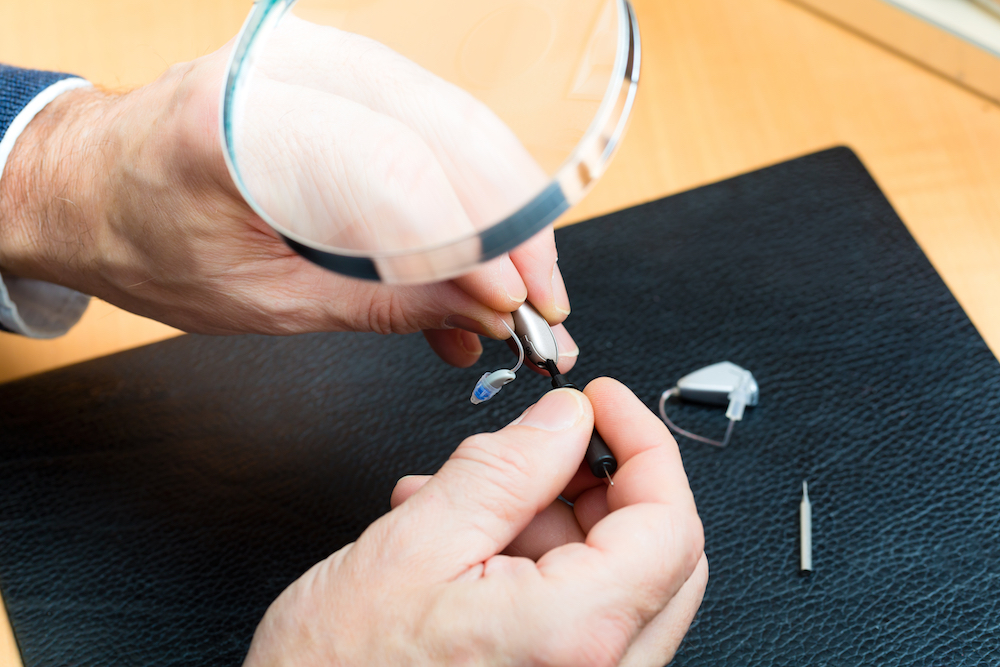Why Do Hearing Devices Break?
Just like any other device, hearing aids can become weak, malfunction or
We’ve moved! 1145 19th Street NW Suite 308 Washington, DC 20036 →

By: admin | June 30, 2022
Did you know that there is believed to be a strong link between hearing loss and your general health? Hearing loss is often thought of as an isolated condition, or a natural part of the aging process, but in reality, it can have a strong connection to a person’s overall health.
For some people, hearing loss can contribute to them developing further medical conditions, and this can cause a broader impact on their general health. Some of the common health conditions that have been linked with hearing loss include depression, dementia and a higher likelihood of experiencing falls. It is believed that these conditions are likely to directly result from people experiencing social isolation due to their hearing loss which triggers the onset of the other conditions.
While you may be aware of the link between dementia, depression and falls occurring as a result of hearing loss, many people are unaware of the connection between heart health and hearing. Read on to learn how these two seemingly unrelated conditions can be linked, and how you can prevent your hearing from being impacted.
Heart disease is a severe medical condition, and it is extremely common in the United States. Heart disease is caused by various factors such as high blood pressure, high cholesterol and a lack of physical exercise. A connection between heart health and the ability to hear may seem unlikely, but there is now a well-established link between the two.
Interestingly, your hearing could be one of the best early indicators of heart disease. This is because your inner ear is so sensitive it can detect abnormalities in the blood flow before it is apparent to other, less sensitive parts of the body.
Abnormalities in the cardiovascular system impact the blood flow and are caused by the build-up of plaque in the arteries. The plaque build-up prevents the blood from flowing freely through the arteries and can cause damage to the ear. The part of the ear known as the cochlea is particularly affected by the poor blood flow caused by heart disease.
This is because the cochlea is dependent on a healthy flow of blood to be able to perform its role. The cochlea collects noise as it enters your ear using its delicate hair cells, and it translates this noise into electrical impulses. These electrical impulses are then sent to the brain for interpretation into recognizable sounds.
But, when circulation is poor as a result of heart disease, the cochlea’s tiny hair cells do not receive the required oxygen they need to carry out their role and they become damaged. Unfortunately, these delicate hair cells are not replaced, so the damage cannot be repaired and the hearing loss becomes permanent.
Improving your heart health is essential to reduce your risk of developing heart disease and experiencing hearing loss and other conditions as a result of this.
Scheduling regular hearing screenings is vital to help you detect the early signs of hearing loss and for your audiologist to recommend appropriate treatment, such as hearing aids to improve your hearing. Attending regular screening tests is especially helpful as it allows your audiologist to spot any patterns that may indicate gradual hearing loss and to build up a clearer understanding of your hearing. So regular hearing tests will enable your audiologist to monitor your results so that any changes to your hearing are detected quickly.
As well as attending regular hearing tests to spot the signs of hearing loss early, it is also a good idea to focus on improving your heart health under the guidance of a doctor. Working on your physical fitness, monitoring your diet and taking greater care of your general health can all contribute to cardiovascular health. Improving your cardiovascular health will help reduce the chances of developing heart disease and potentially protect your hearing too.
Here at Professional Hearing Aid Service, we take your hearing seriously and are pleased to offer regular screening tests to help you protect your hearing and receive the treatment that you need.
If you would like to schedule a hearing test or would like to learn more about us, contact us today to find out more by calling us at 202-785-8704. Our friendly team would love to hear from you and to discuss how we can help you to take the best care of your hearing.

Just like any other device, hearing aids can become weak, malfunction or
By: admin | September 30, 2022

When it comes to hearing aids, there is no one-size-fits-all solution. The
By: admin | August 31, 2022

Did you know that there is believed to be a strong link between hearing
By: admin | June 30, 2022
